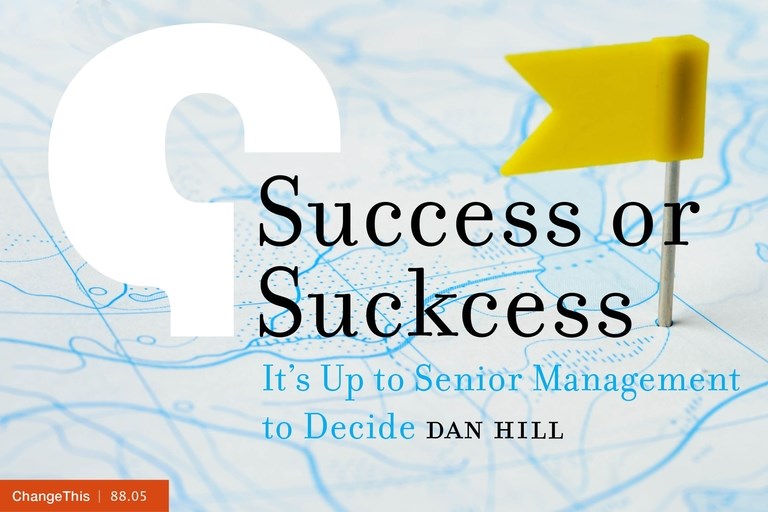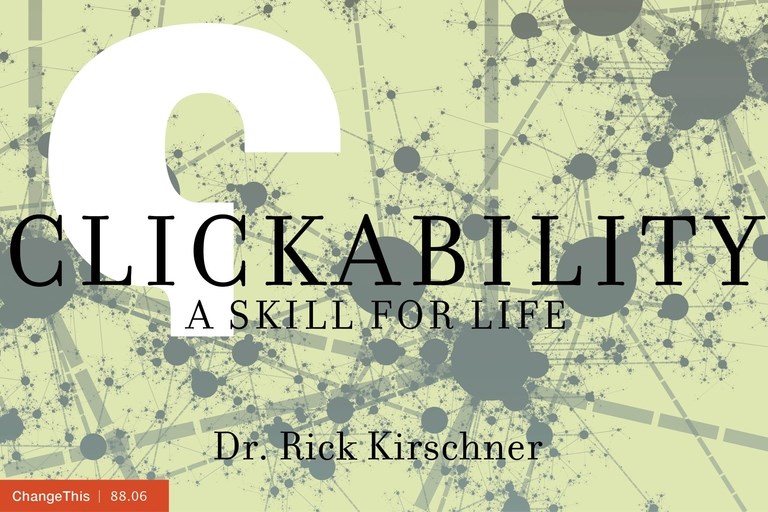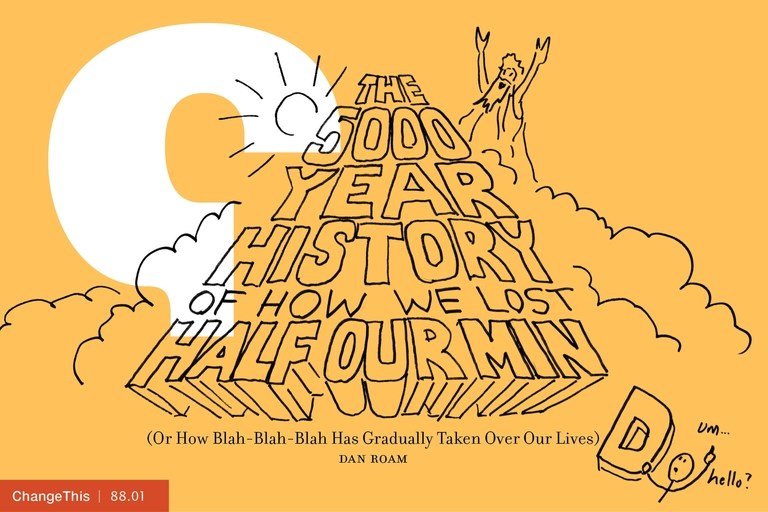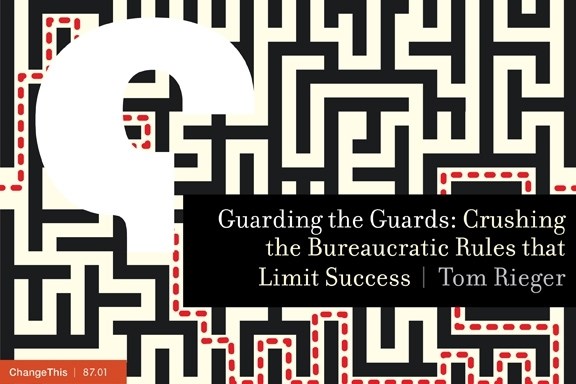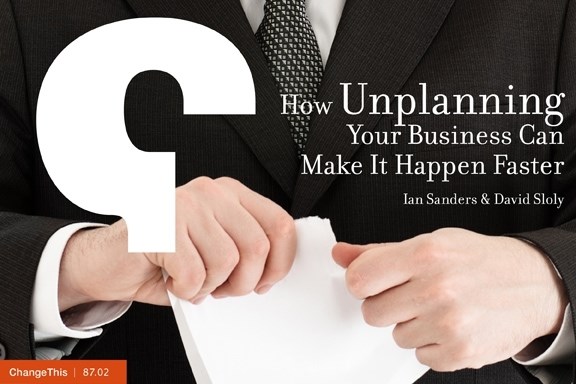ChangeThis RSS
"Ever since the Enlightenment, Western civilization has been on the wrong track. Eager to put the superstitions of the Dark Ages behind him, the French philosopher Rene Descartes famously declared, "I think, therefore I am." But the truth is that over the past 25 years, the breakthroughs in brain science have systematically documented the greater reality that thought and emotion can't be artificially separated and that, in fact, the capacity for emotion proceeded thought in evolutionary terms and continues to do so with every deliberation and act an employee makes. There is no such thing as objectivity. ... Trust is a feeling. Hope is a feeling. Loyalty is a feeling. As companies struggle to emerge from the Great Recession, now is not the time for half-measures like polite (but empty) focus groups, or for the fear that executives may have regarding exposure to the honest feelings of their employees that serves as justification for not pursuing progress. Executives who exhort employees to accept change and sacrifice their own comfort zones must surely be ready to do so themselves."
Continue reading
"Most of what you need to know about success in life is personal in nature. I've learned, through my own experience and that of the people I've worked with, that people need each other to have fulfilling work, successful careers and meaningful lives. Regardless of your cultural background, your age group, or your social status, your need to get along with people is fundamental to your happiness. No matter how much technical skill you have in your particular field of expertise, no matter how smart you are, how capable you are, how gifted you are, if you don't know how to connect, relate and communicate with people, there's little hope for you.
Whether the times are great, or the economy is in the tank, the people who do the best, who prosper and advance, are the people who know how to connect with other people and have it matter. Whether you are a homemaker, a parent, a business owner, a manager, a waiter or a postal worker, your skill with other people determines everything. And when you have the skill to build relationships and networks of relationships, the world is your oyster, and all options are open for you. Being able to click is just a matter of knowing what to do, why to do it, and how to do it."
Continue reading
"32,000 years ago, our most ancient ancestor drew a beautiful bull on the wall of a cave in a place we now call France. That bull is the oldest known human sketch ever found. In the sweep of recorded human history, it is the beginning of the "whoosh." 27,000 years later, another ancient ancestor created Hieroglyphics by drawing a similar bull on a muddy brick, and written language was born. From that moment on, pictures were doomed. Yes, humanity's five-thousand-year love affair with words has given us so much—but at what hidden cost? Over the millenia, we have gradually purged our visual mind from our understanding of language, communications, and intelligence. Just when we need pictures the most, we no longer have the ability to think visually. It's time to bring our visual mind back."
Continue reading
"Fear is destroying companies. Or more specifically, fear of loss is causing companies to destroy themselves.
As managers are forced to do more with less, contend with limited resources, or battle for headcount and budget, many will begin to build walls to help protect their ability to meet their own local goals. Unfortunately, sometimes those walls become so high that those inside lose sight of the ultimate outcome. Their world becomes defined by the piece, and not the puzzle. With the best of intentions, barriers are born, particularly if the rules that are created make it difficult for others outside of the silo to succeed."
Continue reading
"We gave a talk at South By South West Interactive in 2010 and asked a room full of entrepreneurs who had written a business plan if they had actually looked at it since launch. A resounding 'no' came back. So we asked if the business they now owned and ran looked anything like the one they had written about in the business plan. Another 'no.' They all admitted that they had written the plan simply because they thought that is what you're supposed to do. They had exerted great effort on a document that they would not look at again. How does this make sense? And this is from entrepreneurs that made their business idea happen, these were the successful ones. So what of the thousands that started to write a plan, got a little stuck and gave up? What ideas have the world been deprived of because they believed they needed a fully detailed plan to make that thing real? [...]
The problem with writing a fixed plan is that you can get stuck in amber mode. You get so bogged down with hypotheticals, financial modeling and revenue projections that your cool business idea gets stuck in a spreadsheet and the light never goes green. Instead of focusing on making your business idea happen, you end up suffering from analysis paralysis: the number one killer of all great business ideas."
Continue reading

